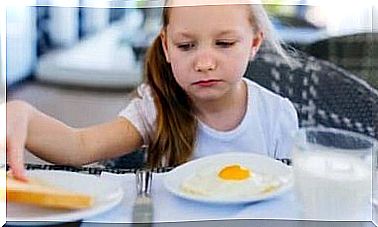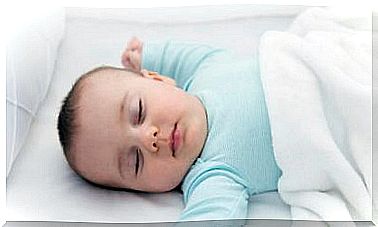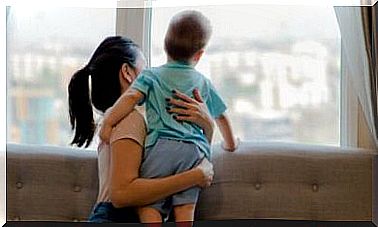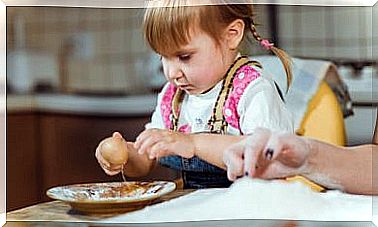Nocturnal Enuresis In Children: What To Do?
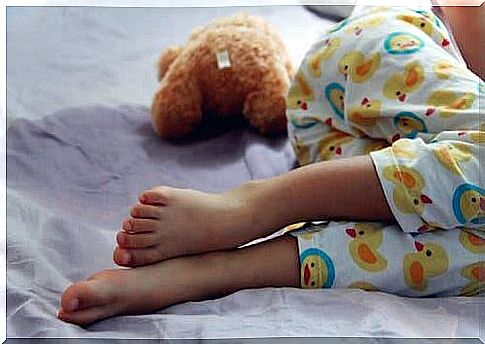
Bedwetting in children is a frequently occurring disorder in children between the ages of 5 and 6. However, this disorder can also affect older children between the ages of 12 and 14. The latter are the ones who suffer the most due to the social implications that bedwetting entails.
This disorder usually improves as the child grows. At around 18 months, 50% of babies control their urination during the day and 10% manage it at night as well. But until the age of two or three, sphincter control does not stabilize and that is why it can happen that children pee in bed at night.
Not all children are able to control themselves at that age. Some take longer and others may reach adolescence without yet fully controlling the sphincter. The reasons are different: physiological, psychological disorders, lack of receptors or low production of the hormone vasopressin that regulates urination during the night.
Do you want to know more information on bedwetting in children? Keep reading this article!
What is bedwetting in children?
Bedwetting is the inability to control the urge to urinate at night. It occurs at an age when one should already have voluntary control of urination.
Two types of enuresis are identified:
- Primary enuresis. It occurs when the baby has never checked the urge to urinate during sleep. This type of enuresis is generally due to physiological causes.
- Secondary enuresis. It occurs when the child has managed not to pee in bed for between six months and a year, but there are episodes again where he does not control his urination at night. This may be due to psychological problems.
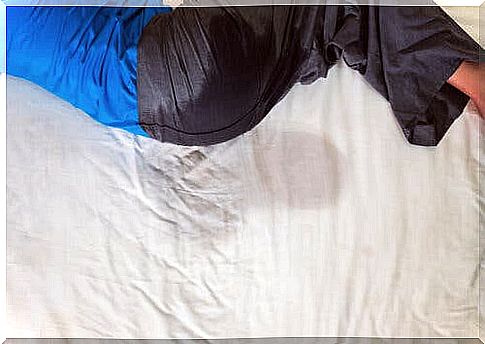
Consequences of bedwetting in children
Decreased self-esteem and self-confidence
The child’s first reactions are one of shame and fear. These sensations increase when the child realizes that other children do not have the chance to pee in bed. This condition generates insecurity and low self-esteem.
Impairs the quality of sleep
Children who suffer from bedwetting tend to have poor quality sleep. Their light sleep phase is longer than the deep sleep phase. Feeling wet, they may wake up multiple times during the night and their sleep is less restful.
Behavioral problems increase
Children who suffer from bedwetting are more likely to be stressed and this can lead to behavioral problems and greater difficulty concentrating.
Difficulty socializing
Children suffering from bedwetting have difficulty socializing, isolate themselves and do not want to go to sleep with their friends for fear of bedwetting and being laughed at. This problem tends to increase as they grow up because they are more likely to socialize.
Some exercises to counteract bedwetting in children
Exercises to control the muscles involved in urination
When he goes to the bathroom to pee, ask the child to stop and hold the urine for a few seconds. It is important not to stop urinating more than twice as this could cause infections. It is best to do this exercise when the baby is almost done peeing because there is less pressure on the bladder.
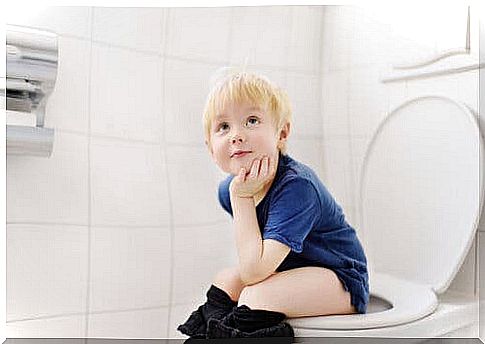
Waking up at night to pee
Parents can set schedules and wake the child three or four times during the night to make him pee. This exercise is very effective because children get used to getting up when they have the urge. This way they will become aware of the stimuli and will know that they will have to get up to go to the bathroom or use the potty. Gradually, they will be able to get up automatically and autonomously.
Exercise to hold the pee for some time
This exercise serves to stimulate bladder capacity and improve urination control. The child is asked not to go to the bathroom until he can’t take it anymore. At first it is enough to hold out for a few seconds, later, you can slightly increase the endurance time. In this way the pelvic muscles are stimulated.
Obviously, in carrying out this exercise one must be very careful and not take the child to the extreme. Furthermore, it must be carried out under the strict supervision of the parents.
Now you have some more information on children’s bedwetting. If the child is unable to control urination at any time, a pediatrician should be consulted. If, on the other hand, he succeeds, but sometimes he still pees in bed, you can try the exercises we have listed and see if the situation improves. If not, we advise you to consult a specialist.
